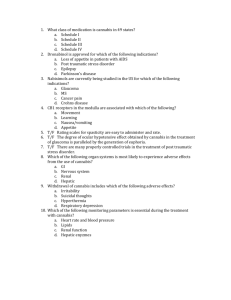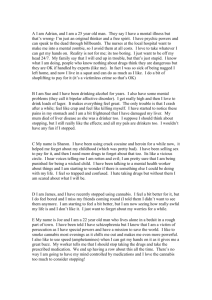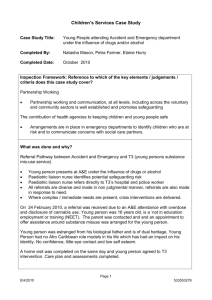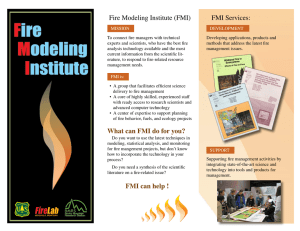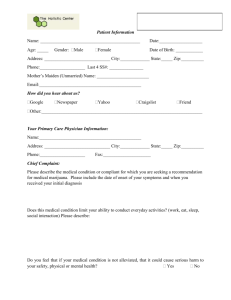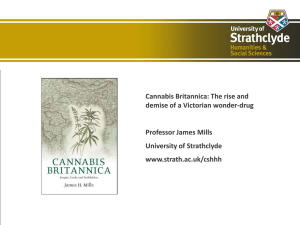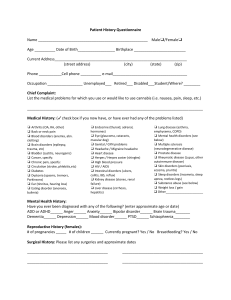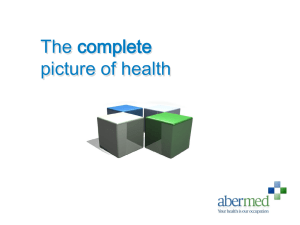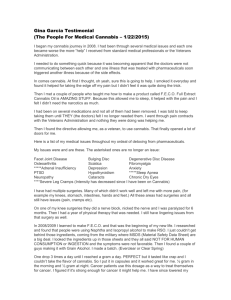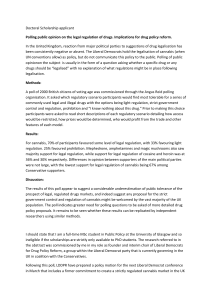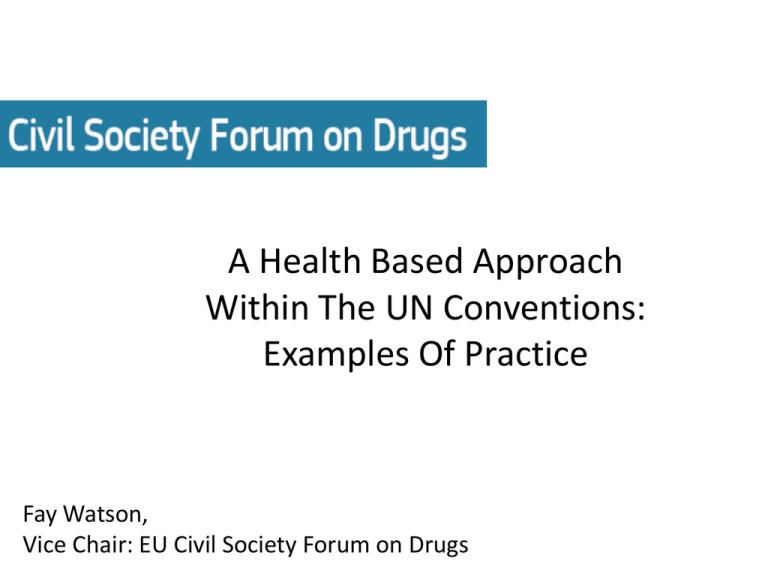
A Health Based Approach
Within The UN Conventions:
Examples Of Practice
Fay Watson,
Vice Chair: EU Civil Society Forum on Drugs
EU Civil Society Forum on Drugs:
The Civil Society Forum on Drugs (CSF) meets at least once a year
and serves as a platform for informal exchanges of views and
information between the European Commission and civil society
organisations.
In 2013, 40 organisations became members of the Civil Society
Forum for a two year period
We support the delivery of the Public Health Components of the
EU Drug Strategy (2013-2020)
Drug demand interventions defined as “equally important and
mutually reinforcing”:
1) Prevention (environmental, universal, selective & indicated)
2) Early Detection and Intervention
3) Risk and Harm Reduction
4) Treatment
5) Rehabilitation
6) Social Integration
7) Recovery
1) Prevention (environmental, universal, selective & indicated)
Comprehensive approaches involving community, school and family
were found effective in a systematic review of 222 studies at
preventing-delaying-reducing use :
- of cannabis and all illicit drugs when compared with communityonly programmes and school-community programmes
- In high-risk individuals when compared to low-risk individuals
2) Early Detection and Intervention
School-based programmes developed with the EU-Dap Model that
implement concepts of social influence and life skills were found to be
effective, even at 1 year follow-up and particularly with boys (Faggiano
et al, 2010)
www.eudap.net
3) Risk and Harm Reduction
Opioid substitution treatment (OST) reduces the risk of HIV infection
among those who continue to inject drugs
4) Treatment
Family Motivational Interventions (FMI), The Netherlands
For cannabis using patients with schizophrenia, early intensive
interventions are not very effective due to non-compliance. FMI was
developed for this target group. The intervention has an inpatient
phase (2 months) followed by 12 month outpatient treatment.
Patients as well as caregivers (i.e. parents, family) were assigned either
FMI or psychoeducation.
The FMI group showed significant decrease in mean days of cannabis
use and in mean grams of cannabis use. In both groups, carers (family
members) significantly improved on all outcomes (burden of disease,
coping style and mental health).
5) Rehabilitation
Prisoners with drug problems in Italy can spend a 3 year prison
sentence in rehabilitation tackling their drug dependence, learning
new skills and building positive relationships instead of prison.
6) Social Integration
Contextual factors (e.g. social attitudes to drug users, local and
national economic prosperity, standards of living in the general
population, professional training, stability in problem drug users’ lives,
etc.) are extremely important moderators of success related to social
integration. BUT social integration still not placed at the heart of drug
or social strategies.
7) Recovery
World Health Organisation (WHO) found combined psychosocial
(contingency management, community reinforcement,
psychotherapeutic counselling and family therapy) and
pharmacological assistance were found to be effective in a systematic
review of five randomised control trials in:
• Increasing rates of completion of treatment
• Reducing rates of relapse at follow-up
Any Questions?

